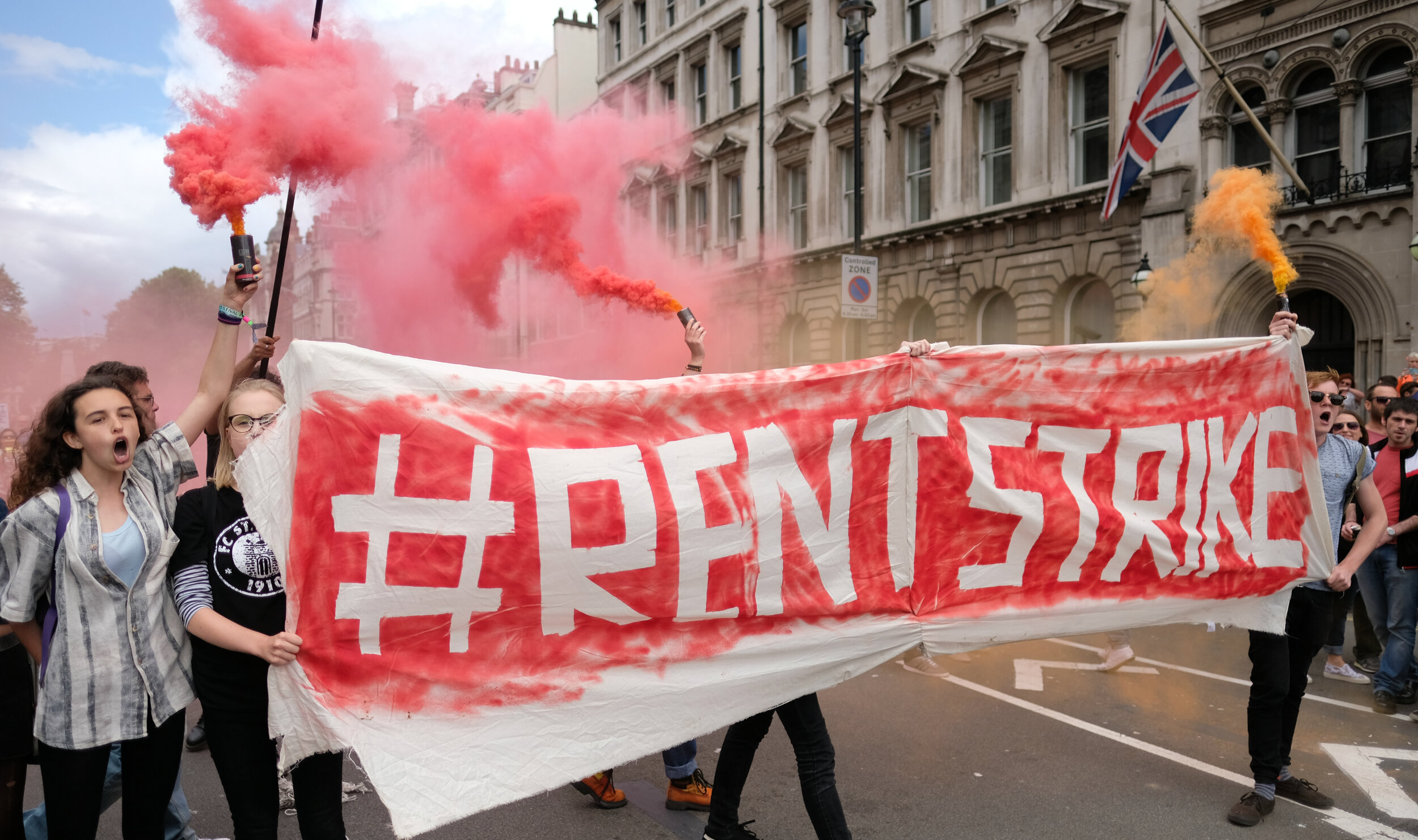UCL should cut the rent
On July 8, the University College London (UCL) Rent Strike group published an open letter detailing their demands of the university.
Image by Alisdare Hickson on Flickr
UCL’s Cut the Rent movement has been a force on campus for a while, but the Covid-19 pandemic has intensified the group’s urgency and vision. Their latest open letter frames longstanding discontent with the university funding model in light of novel concerns about safety and fairness during a year of unprecedented disruption to students’ lives.
The letter has five core demands, which the organisers claim to be the most radical of any current university rent strike in the UK. These are:
1. A full refund for all rent paid this year
2. A rent freeze for the next five years
3. No evictions during the pandemic
4. An end to the zero-hour contracts and outsourcing
5. Transparency surrounding university financing.
The key concerns that these seek to address include the “marketisation of higher education”, “rent which is rising above the market rate and above inflation each year”, lack of mental health support, and inadequate accommodation. On the subject of the latter, the students behind the letter claim: “We’ve seen our ceilings collapse, mould grow in our bedrooms, and the police entering our living areas.”
Meg Day, a first-year student and UCL Cut the Rent organiser, contrasts her initial expectations as a fresher with the conditions at university this year: “You’re sold the illusion of a student-centered institution that cares not about profit, but instead, of student well-being, sustainability, and ensuring all workers are treated fairly. For most UCL students, it becomes gradually evident that this isn’t the case — but for those of us who started this year, ‘Covid-19 students’, the illusion was shattered immediately.” Day points to the “rising in-hall cases and hyper securitisation” encountered upon moving into halls as evidence that advising students to do so was unwise, with the overpromise of a ‘hybrid learning approach’ another source of disappointment. These factors, she claims, prompted students to start asking questions: “Why were we sent back, despite all evidence proving that this was an unnecessary risk? Why was there no option, from the beginning of term one, to cancel our accommodation contracts? Why did they lie to us about the amount of in-person sessions we would be having?”, which sparked her involvement in the Rent Strike.
Amongst the signatories of the open letter are over 150 UCL students who are currently on a rent strike for Term Three. These students have recently been sent an overdue rent reminder, in which court proceedings are listed as a potential consequence should their rent remain outstanding.
Thus far, UCL has responded to the pressure from students by granting some concessions, including a halt to evictions during the pandemic and abolition of the £25 late payment fee. However, these have been deemed inadequate by the strikers, who consider these to only be tokenistic actions. Daisy Goddard, a History MA student and UCL Marxist Society member, explains: “Fundamentally, they haven’t met our demands [...] Management is trying to play the long game and hope that the strikes are going to fizzle out after the intimidation of the students, but we’re determined to show that we’re not going anywhere and that we’re resolute.”
The Rent Strike group has been in talks with the UCL accommodation team, but they claim that their productivity has been limited, alleging that UCL’s main motivation is “to protect their profits”. Goddard echoes this sentiment: “We want to use the rent strike to lay bare the wider forces that are at play here. It’s clear that UCL isn’t negligent of its students just because management don’t care, it’s more structural than that,” she explains, “There’s an unwillingness to compromise the profit motive and a continual drive to make more and more money whilst students are getting a worse and worse experience.”
The closed nature of these meetings with management, with limited participation from UCL students, has raised concerns about transparency. Nonetheless, those who have attended feel they have gained an insight into decision making at the university: “it has been said that the only reason UCL scrapped the storage fee and allowed people to cancel their contracts during the pandemic was because of [...] fear that a similar situation to the organised striking and occupying students at the University of Manchester could be replicated at UCL”, Day claims, adding that “given our successful history with winning rent strikes, it is understandable why that was a concern of theirs”.
Both strikers emphasise the magnitude of their current goals. Day says that “While the anger and the militancy of this strike was sparked by the inhumane treatment many students received in halls this year, this is about something much bigger and a vision for the future of higher education that isn’t marketised and genuinely delivers.” Goddard agrees: “We’ve got the most radical demands of any rent strike in the country, and we haven’t wavered from these as we believe that this is what’s necessary for the students affected and to fight more widely against the issues at play here.”
Whether UCL will meet any of the strikers’ demands remains to be seen, but those involved in the movement are confident in their resolve — as Goddard says, “It’s time to hold management accountable.”

